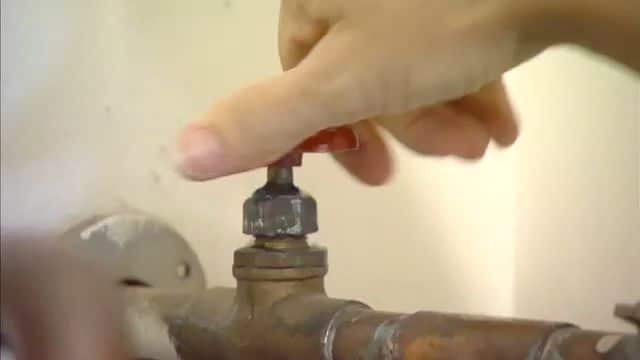Imagine waking up on a crisp morning, looking forward to a hot shower to kickstart your day, only to find that your water heater won’t drain. That’s not an ideal start, is it? If you’re not naturally inclined towards home maintenance, this could be a particularly distressing situation.
Fear not, because you are not alone, and this article is here to guide you. I have navigated through similar situations and have gathered substantial experience that I am eager to share with you. We’ll discuss practical, safe methods to unclog your water heater and ensure it functions efficiently.

Why Won’t Your Water Heater Drain?
A common cause of water heaters failing to drain is sediment build-up. Particularly in older models, which lack anti-sediment features, this can be a significant issue. The sediment obstructs the drain, preventing the water from flowing out smoothly.
Hot Water Methods: No Cooling Required
These techniques don’t require you to cool off the tank. However, remember to wear protective gear as dealing with hot water carries burn risks.
Backflushing
For this method, a washer-fill hose is essential. This hose has connections at both ends – attach one end to the drain valve and the other to a washtub or faucet. Open the drain valve and turn the water on. The water pressure generated pushes the sediment away, unclogging your water heater. After about two minutes, shut off the water, close the valve, remove the hose, and let the heater drain.
Hose Stomping
If the drain valve is clogged during the draining process, forcefully stomping your foot on the hose pushes a burst of air into the tank, dislodging the sediment. Repeat this until the water flows freely. This method is not suitable for kink-proof hoses but works well with standard ones.
Waiting it Out
Sometimes, the heater may unclog on its own with a bit of patience. This method might take an hour or two, and although it doesn’t require constant monitoring, it’s the least effective against heavy sediment congestion.
Cold Water Methods: Caution Required
With cold water methods, you’ll be working close to the drain valve. Therefore, it’s essential to shut off your hot water tank for up to a day before proceeding.
The Hanger Method
This method can be messy, so protect your floors with towels. Insert a coat hanger wire into the open drain valve and move it in circular motions to dislodge the sediment. Once the water begins to flow out, close the drain valve and attach a hose. Repeat this process as necessary.
Replacing Drain Valves
Sometimes, a faulty drain valve could be causing the problem. Before you start the replacement process, make sure all faucets in your home are off to prevent air from entering the tank. Then, apply Teflon tape to the new valve’s threading for waterproof sealing. Remove the defective valve’s screws, prepare for potential leakage, swiftly take out the faulty valve, and install the new one.
Open Flushing
If there’s a floor drain near your heater, you can remove the drain valve and let the water flow directly into the floor drain. Use a coat hanger to dislodge sediment as needed. Though tedious, this method can be highly effective.
With these methods in your toolkit, you’re well-prepared to handle a clogged water heater. It may seem daunting at first, but with a bit of patience and practice, you’ll find it’s not as difficult as it appears. However, if you’re uncomfortable performing these steps yourself or if your heater still won’t drain after trying these methods, it’s best to consult with a professional. Always prioritize your safety and the proper functioning of your equipment.

Jay
Jay is a health and wellness enthusiast with expertise in water quality and nutrition. As a knowledgeable advocate for holistic well-being, Jay successfully manages Type 2 Diabetes through informed lifestyle choices. Committed to sharing reliable and authoritative insights, Jay combines firsthand experience with a passion for enhancing health."
